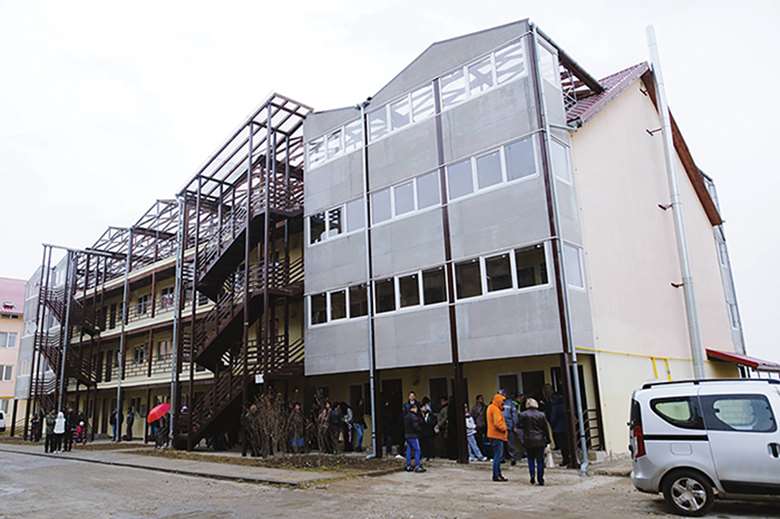Care leaver support in Romania
Derren Hayes
Wednesday, July 26, 2017
Romania has a chequered past when it comes to the state looking after children.

In the early 1990s, it emerged that tens of thousands of children were living in terrible conditions in state-run orphanages following the collapse of communism. The scandal prompted an international outcry and relief effort. Charities were set up to provide support, recruit volunteers to help in orphanages and in some cases arrange for children to be adopted by those in wealthier countries.
The crisis had arisen because anti-abortion and contraception laws introduced under the dictatorship of Nicolae Ceausescu saw a population rise as economic hardship deepened.
Many of the orphanages were closed resulting in children made homeless and living rough. Despite this, the number of children in care rose from 47,000 in 1990 to 87,000 in 2000, according to official data. Around 60 per cent of children in care were in orphanages.
POLICY AND REGULATION
Romania's population is about a third of the UK's. Yet, by the early-2000s, there were more children in care in Romania than in the UK. The Romanian government introduced policies designed to bring the number of looked-after children down and by 2022 close all residential institutions. By the start of 2016, there were 51,000 children in state care, of which 8,000 were in institutional care.
The National Strategy for Social Inclusion of Youth to Leave the Child Protection System has been created, setting out a series of measures to help young people transition from state care to supported independent living.
The strategy, which should see the amount of funding allocated to transition support rise five-fold, aims to co-ordinate actions to ensure young care leavers are socially included; reduce their risk of marginalisation and social exclusion; and actively participate in the community.
Laws introduced in 2014 require social housing services to create semi-independent living arrangements for care leavers.
Meanwhile, laws on social assistance mean care leavers are entitled to access employment opportunities, education and training, and public housing.
LOCAL SERVICES
At a district level, care leavers aged 18 to 30 can stay in a "social home" for up to three years. These are temporary options for care leavers who have no extended family or friends to live with. In Arad province, in the west of Romania, the social home has capacity for 50 young people, with different sized dwellings enabling friends and sibling groups to live together, and one bedroom apartments for individuals.
"The social home was founded as a result of a necessity, since the young people who have reached 18, coming from care institutions, receive no protection as they are considered adults according to law," says Oana Parvulescu, director general, development and community assistance directorate, Arad Council.
The authorities in Arad have also established a Multifunctional Social Centre to provide a range of dedicated support services for care leavers, including with housing, employment and careers guidance, and counselling.
Although the centre and social home perform a "compensatory function", they are aimed primarily at helping young people to "develop the conviction to organise their own lives", explains Parvulescu.
Young people also learn how to run a home and manage finances. Once they have found work or undertaken training they are supported to move on to independent living. Parvulescu says some young people go on to be allocated state housing.
PRACTICE AND IMPACT
The practitioners that work in the social home and social centre are called "social and psychological assistants". They are qualified social workers trained to offer holistic support for vulnerable care leavers. They are involved in the "reorientation" of the young people and help them with developing skills and resilience.
"Many young people have benefited from the services provided by these two centres," says Parvulescu. "Some have had the chance to continue studies, graduating from university and entering professions such as social care, medicine and management. Others have qualified in various jobs and got work."
IMPLICATIONS FOR THE UK
Care leavers consistently tell us that they often lack the skills to run and manage a home, as well as struggling with loneliness. The social home would meet these needs - helping care leavers to develop the skills and networks that they say are so crucial to succeeding as adults.
One thing that we can learn from Romania is that investing properly in the things that care leavers say they need - well trained, qualified staff who have the time to support them, safe and secure housing that caters for a range of needs and access to counselling - should be a priority. Also, looking at what they are doing in Romania suggests that we need to consider whether we do enough for young people if they encounter problems later in their 20s. Mental health problems, redundancy and relationship breakdowns can all result in a young adult returning to the family home - which just isn't possible for care leavers. We have a wealth of guidance and legislation that sets out what care leavers need to prepare them for challenges in adulthood, but the reality is they aren't getting that support.
Chloë Cockett, policy manager at care leavers charity Become




